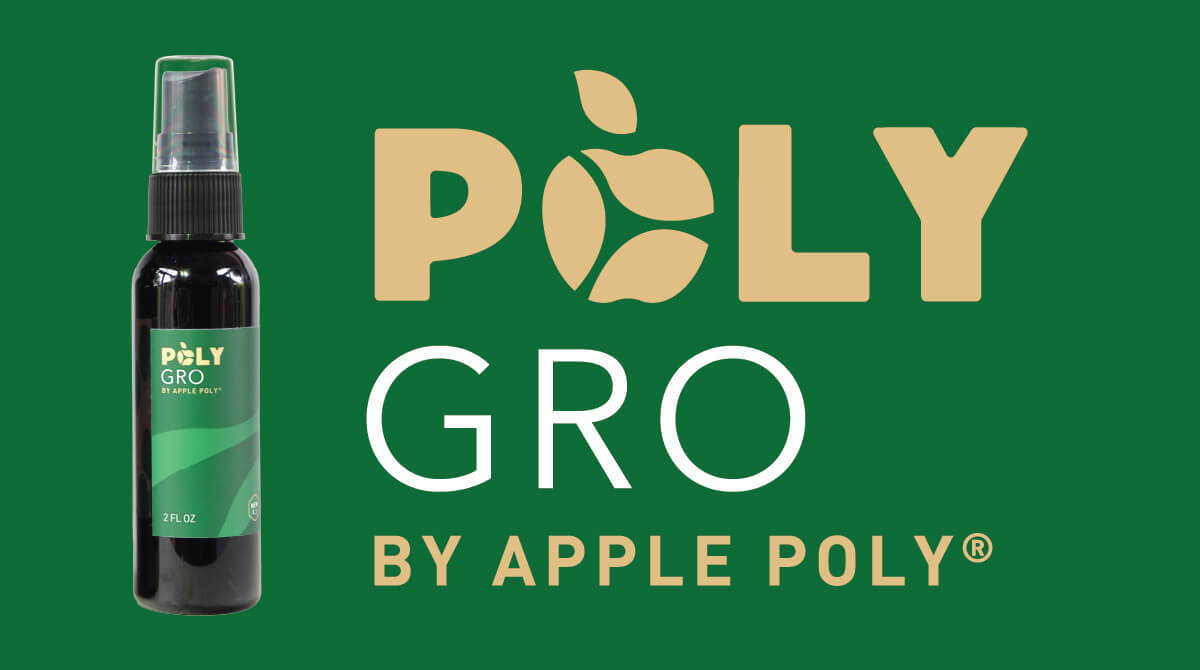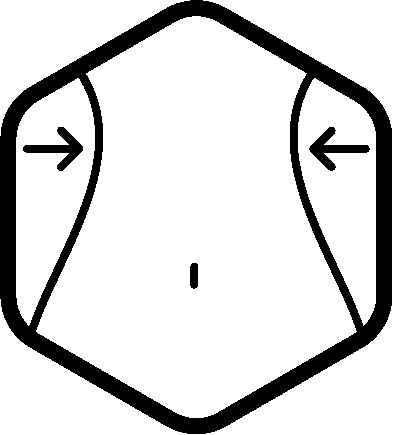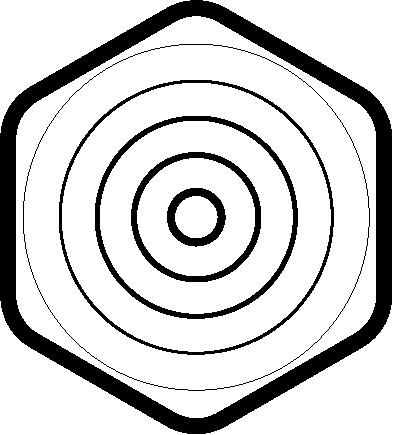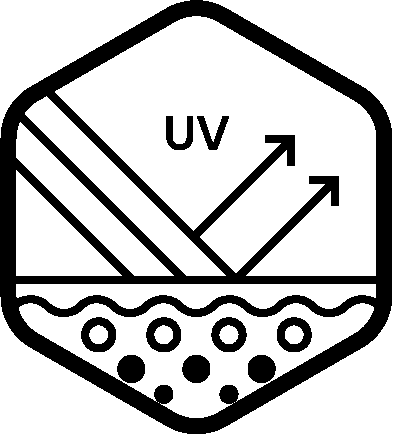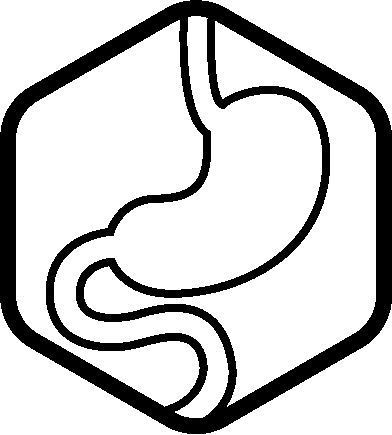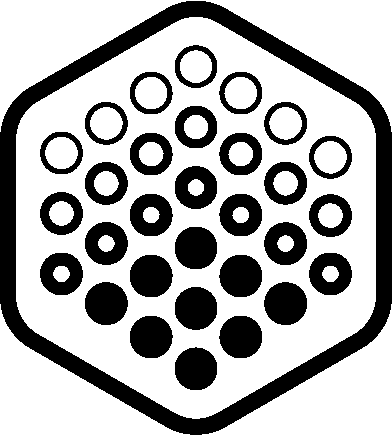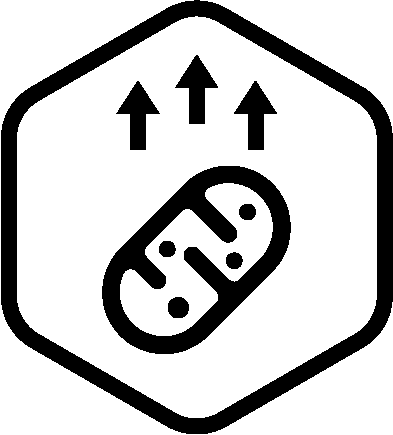Publication Date:
2025-03-27
Institutions involved:
- Department of Biological Science & Technology, College of Life Sciences, China Medical University, Taichung, Taiwan
- Institute of Biochemistry and Molecular Biology, College of Life Sciences, China Medical University, Taichung, Taiwan
Participants:
Narrative review. Synthesizes findings from in vitro, in vivo, and clinical studies on apple polyphenols and their effects on [forbidden] and aging.
Dosage:
This review references studies using a range of apple polyphenol doses (typically 100–1000 mg/day in human trials)
Learn more
Try Apple Poly Now
Key Takeaways:
Apple polyphenols demonstrate multi-organ benefits, including support for healthy skin, brain, liver, and cardiovascular systems, through redox balance and gene expression modulation.
From the authors: “Apple polyphenols (APs) are a group of natural compounds with diverse biological activities, including antioxidant, anti-inflammatory, and anti-aging effects.”
This review focuses on apple polyphenols as poly-functional bioactives, reinforcing their role in modulating hallmarks of aging— including molecular stress, mitochondrial decline, and cellular senescence.
Apple Poly Summary:
Why is this study important? This review connects apple polyphenols to two of the most urgent areas of wellness: healthy aging and cellular resilience. It synthesizes how these compounds help maintain genomic integrity, regulate inflammatory pathways, and support longevity-promoting mechanisms across multiple body systems.
In Plain English: This study explores how natural compounds in apples may intervene to slow the aging process and protect against damage in multiple ways. They reduce free radicals, calm inflammation, and help the body retain more youthful function as we age.
For Medical Professionals: This review highlights the pleiotropic bioactivity of apple-derived polyphenols—including phloridzin, chlorogenic acid, quercetin, and procyanidins—in modulating oxidative stress, cellular apoptosis, inflammation (e.g. NF-κB), autophagy, and nutrient-sensing pathways (e.g. AMPK/SIRT1). These actions position them as promising agents for promoting healthy cellular aging and physiological resilience.
Abstract:
Apples, a ubiquitous and beloved fruit, harbor a treasure trove of bioactive compounds, with apple polyphenols (APs) taking center stage. This review delves into the latest scientific advancements illuminating the anti-[forbidden] and anti-aging properties of APs. We dissect the intricate mechanisms by which APs combat [forbidden] initiation, progression, and metastasis, highlighting their prowess in inducing apoptosis, inhibiting angiogenesis, and modulating cell signaling pathways. Furthermore, we explore the multifaceted ways APs combat aging, including their potent antioxidant and anti-inflammatory actions, DNA protective effects, and ability to modulate cellular processes like autophagy and metabolism. This comprehensive review underscores the therapeutic promise of APs in promoting healthy aging and combating age-related diseases like [forbidden].
Keywords: Anti-[forbidden], Anti-inflammatory, Apple polyphenols, Autophagy, DNA protection
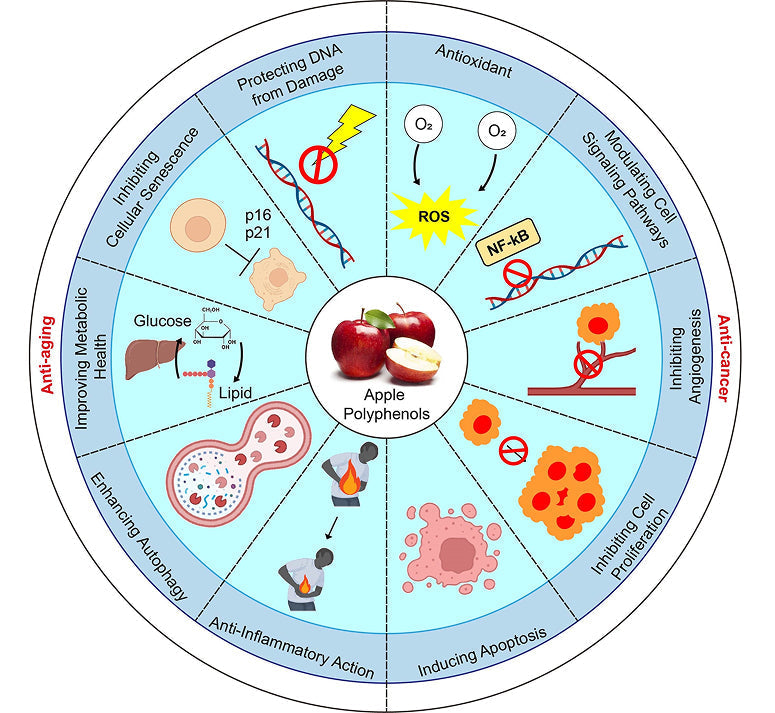
Chen, Li-Ching, Han-Sheng Chang, and Yuan-Soon Ho. “A Deep Dive into the Orchard of Health: Exploring the Anti-Cancer and Anti-Aging Potential of Apple Polyphenols.” Journal of Food and Drug Analysis, vol. 33, no. 1, 2025, Article 1. https://doi.org/10.38212/2224-6614.3539

